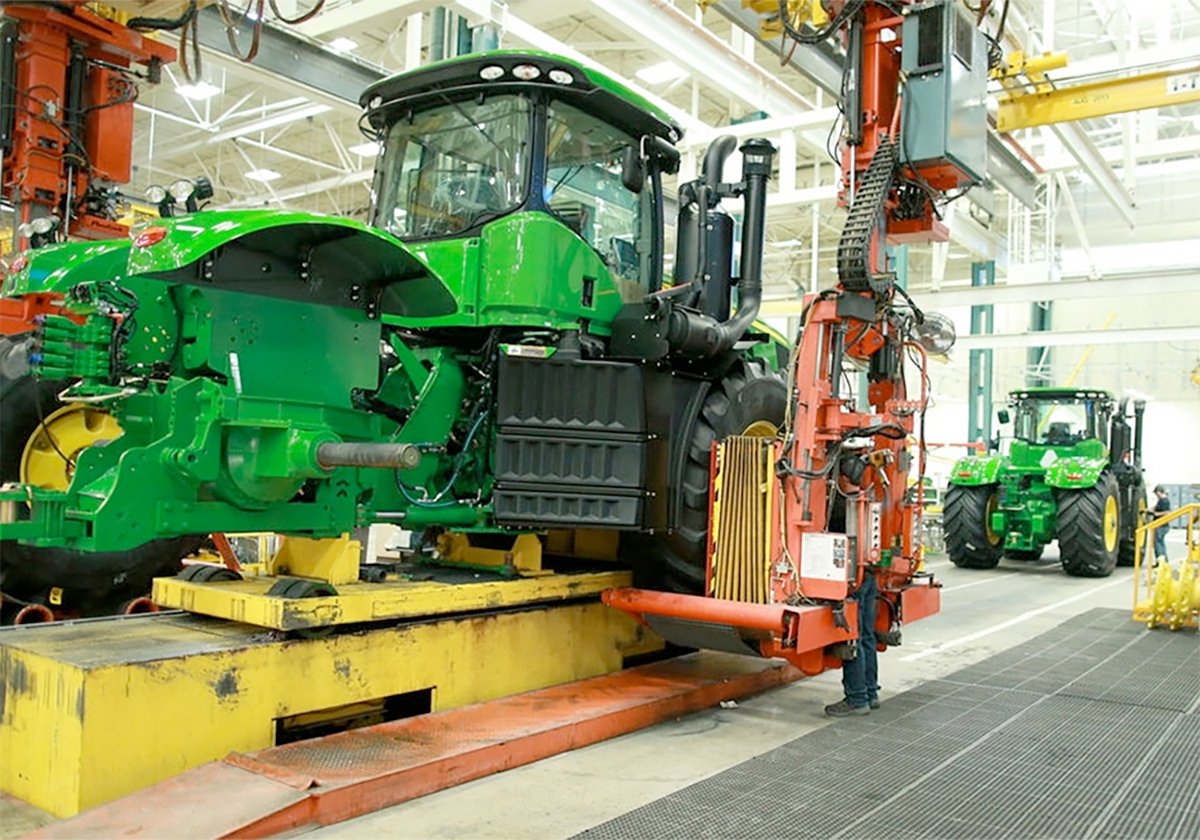Sustainability is dead? Long live sustainability

Every farmer I have ever spoken to is intent on passing along their farm in better shape for the next generation. Indigenous farmers embrace managing their land for seven generations ahead.
This thinking can inspire how Canada can compete in an unsettling global economy.
Leaning into environmental sustainability may seem counter-intuitive at a time when U.S. president Donald Trump’s America is purging the mention of “climate change,” environmental, social and governance disclosures are dismissed by some as being a woke tagline and Canada is grappling with injurious tariffs.
Read Also


Farm equipment sales sector sees significant structural changes
Sales of new farm equipment have been declining quite dramatically in North America over the past couple years.
Yet, there are three reasons why the agrifood sector’s sustainability will underpin Canada’s future competitiveness. Enabling these advantages are vital because agriculture represents seven per cent of national gross domestic product, and food and beverage processing is the largest manufacturing employer.
First, Canada is a global leader in advancing on-farm environmental sustainability. The Global Institute for Food Security found that Canadian farmers, particularly in Western Canada, are producing some of the least carbon-intensive crops in the world.
Chief executive officer Steven Webb flags one example: “Saskatchewan’s carbon footprint to produce one tonne of canola is 67 per cent lower than the global weighted average, thanks to widespread adoption of reduced tillage and of herbicide-tolerant canola.”
Canada has a new tool that few others possess.
The National Index on Agri-Food Performance presents how sustainability ought to be measured. While a work in progress, it has shown that a coalition of 155 partners, including producers and food companies, can align around high-level measures.
Getting finer-level data is a priority, such as measuring biodiversity in local habitats. Better measures are needed to understand food production impacts and address shortcomings, back up claims and assess investment risks.
The second sustainability advantage is that Canada is among a privileged club of countries that have a trade surplus in food.
Canada is a major net-exporter of crop and livestock animal products by volume
The Canadian Agri-Food Policy Institute (CAPI) recently reported that every major commodity being traded worldwide is supplied by only a handful of countries in consistent trade surplus.
“For crops and livestock relevant to Canada, we’re in a small league of several countries that can supply some 70 per cent or higher of world net exports,” says Ted Bilyea, CAPI’s senior fellow.
“For instance, Canada is the leading net exporter of pulses at 44 per cent, followed by Australia at 26 per cent.”
CAPI’s work shows that China and a number of other Indo-Pacific countries are netimporters of food.
“Given that we produce more than we consume at home, Canada is one of those special places that can contribute to other countries’ food needs,” Bilyea says.
Being such a long-term supplier requires, in part, ensuring that Canada’s rail and port infrastructure keeps pace with this export ambition. Food security and reliability go hand in hand.
The third advantage is about being in a better place in a worsening global climate crisis.
Canada is not immune from climate change, but it is relatively more resilient. A report from RBC highlights that Canada’s fresh-water withdrawal for agriculture remains low at 11 per cent, compared to 67 per cent in Australia and 40 per cent in the United States.
This work also found that Canada, under a high growth export scenario, is projected to increase its agri-food exports by $44 billion by 2035.
“Canada’s efficient agricultural production plays a critical role in meeting this potential,” says Lisa Ashton, agriculture policy lead with RBC Thought Leadership.
Still, remaining at the forefront of continuous improvement matters.
As Trump cuts funding for climate smart agricultural innovation, Canada should increase such investment.
Speeding regulatory reviews of new technologies and products and testing new methods to improve resilience, such as regenerative agriculture, can benefit producers and food processors alike.
In short, Canada should continue to be a global agricultural heavyweight because of its sustainability credentials — advantages to be stewarded and deliberately enhanced.
Our farmers are, indeed, onto something: take care of soil and water today — Canada’s nature capital — to create wealth for tomorrow.
My bet is that the agri-food sector can get more deeply aligned around this core idea to position Canada for enormous future success.
David McInnes is a consultant with DMci Strategies, founder of the National Index on AgriFood Performance and a former chief executive officer of the Canadian Agri-Food Policy Institute.
Source: producer.com


